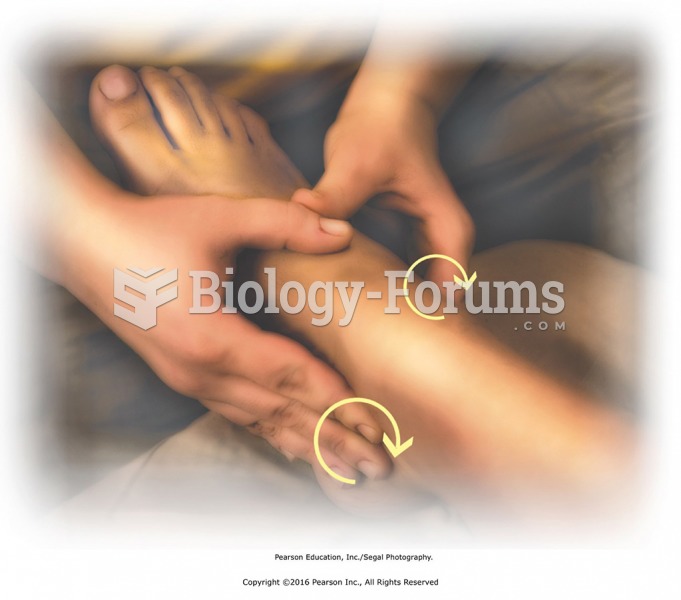This topic contains a solution. Click here to go to the answer
|
|
|
Did you know?
More than 50% of American adults have oral herpes, which is commonly known as "cold sores" or "fever blisters." The herpes virus can be active on the skin surface without showing any signs or causing any symptoms.
Did you know?
The immune system needs 9.5 hours of sleep in total darkness to recharge completely.
Did you know?
This year, an estimated 1.4 million Americans will have a new or recurrent heart attack.
Did you know?
Acetaminophen (Tylenol) in overdose can seriously damage the liver. It should never be taken by people who use alcohol heavily; it can result in severe liver damage and even a condition requiring a liver transplant.
Did you know?
Alcohol acts as a diuretic. Eight ounces of water is needed to metabolize just 1 ounce of alcohol.
 Circular friction around the ankle with the fingertips. Applying pressure with the fingertips, move ...
Circular friction around the ankle with the fingertips. Applying pressure with the fingertips, move ...
 Using the same hand position as in Step 3, apply circular friction along paraspinal muscles of the ...
Using the same hand position as in Step 3, apply circular friction along paraspinal muscles of the ...





